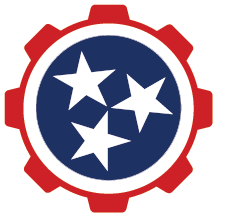Competency 5: Professional Development
To engage in Professional Development means to commit to practicing, learning and connecting with others in to grow and develop a meaningful career in learning design and technology.
Narrative
Sub-competency 1: Demonstrates the disposition for life-long learning and continuous professional development
In EDCI 67200 Advanced Practices in Learning Systems Design course, I developed my problem solving and problem finding skills in Instructional Design using case studies and analysis. In my final project, I wrote a reflection on how to develop my ID expertise. What I came to realize through the process of case study analysis, was that in order to become an expert, I must begin to think like an expert. Ertmer and Stepich (2005) wrote: “a person who begins to think like an expert will naturally begin to engage in the reflective, adaptive practices of the expert” (p.38). I believe confidence and resolve are realized first in the mind and realized through reflection and continuous practice. In my paper, I outlined an action plan for continuous professional development in the following three areas:
1. Continue to use the case analysis checklists in analyzing future case studies
2. Continue writing case analysis to develop analytical thinking and writing skills
3. Continue to develop more synthesis in my writing style
This reflective process helped identify three areas of opportunity to improve my ID skills and demonstrated a desire to continuously improve my ID skills in order to become an expert Instructional Designer through practice.
In July of this year, I was selected to participate in the USAF FIRST Leadership Experience as part of my role in my FIRST robotics club as a team mentor. This was a great opportunity as it occurred during my EDCI 528 Human Performance Technology course. I created a blog entry to share my key takeaways and experiences as it provided a way for me to connect what I was learning about human performance with an actual leadership development program. This 3-day leadership workshop provided an opportunity for me to connect with other teachers and mentors who have a passion for youth STEM outreach, robotics, and education. By attending this leadership experience, I learned about professionalism and the importance of leading oneself. On the first day, we attended a presentation on professionalism presented by M.Sgt. Keith Castille who said “as leaders and educators, our #1 job is to help bring out the best version of our people intellectually, physically, and emotionally” (Castille, 2016). In the spirit of continuous improvement, I expanded on my original blog entry to create a 3-day leadership reflection using Articulate Rise to share my experience with my FIRST robotics team members and mentors.
Competency Reflection
Professionals are characterized by their actions as individuals who consistently strive to become the very best they can be in their chosen field. As M.Sgt. Castille (2016) would say often in our leadership course: “It’s not what we do, but how we do it” that builds professional development. To be identified as a professional means taking advantage of learning opportunities to continuously improve especially when those opportunities take you outside of your circle of comfort. I believe real growth and learning happens here.
References
Castille, K. (2016). Professionalism: enhancing human capital [PowerPoint slides]. Retrieved from
http://www.airman.af.mil/Portals/17/002%20All%20Products/002%20Course%20and%20Lessons/001_Course_Overview/NO%20VIDEOS%20-%20EHC%20Slides%20-%2019%20Jan%2016%20Web%20Ver.pdf?ver=2016-02-09-172902-947
Ertmer, P. A., & Stepich, D. A. (2005). Instructional design expertise: How will we know it when we see it. Educational Technology, 45(6), 38-43.


